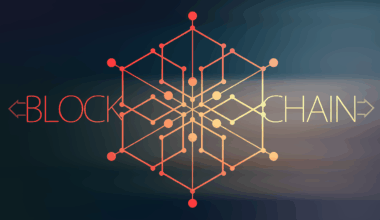The Role of Marketing Automation in Enhancing Customer Loyalty
Marketing automation is a powerful tool that enhances customer loyalty by streamlining processes and improving engagement. By automating repetitive tasks, marketers can focus on developing strategies that resonate with their audience. Increased efficiency allows businesses to analyze customer data effectively and tailor personalized experiences. This leads to meaningful interactions that foster loyalty. Email marketing campaigns, for example, can be automated to send personalized messages based on customer behaviors. Utilizing data helps marketers craft targeted offers, which can significantly boost customer satisfaction and retention. Additionally, marketing automation enables consistent communication across various channels, ensuring that customers receive timely information. When customers feel valued through tailored communications, their trust in a brand strengthens. Moreover, such systems allow for real-time tracking of customer activities, enabling businesses to adjust their approaches quickly. Emphasizing the importance of data-driven marketing, businesses can refine their messages based on analytics. Customers appreciate when businesses recognize their preferences and act on them. As a result, marketing automation not only increases efficiency but also plays a crucial role in enhancing brand loyalty.
Personalization Through Automation
Personalization is a key feature of marketing automation that directly contributes to customer loyalty. Today’s customers expect tailored experiences that reflect their individual preferences. With automated systems, marketers can segment audiences effectively and deliver content that resonates personally. This segmentation can be based on various factors such as purchase history, browsing behavior, or demographic information. Automation technologies help businesses generate personalized emails, product recommendations, and targeted ads at scale without the need for manual intervention. When customers receive communications that align with their interests, they are more likely to engage positively. Furthermore, personalized interactions can create a sense of belonging and value among customers, reinforcing their loyalty to a brand. Regularly updating customer segments and preferences is crucial to maintaining effective personalization. This requires continuous monitoring of customer behavior. As customers evolve, marketing strategies must adapt accordingly. Brands that document changes in customer behavior and preferences can adjust their marketing efforts swiftly. Overall, the ability to personalize experiences through automation not only enhances customer satisfaction but also nurtures lasting relationships that lead to loyalty.
Another essential aspect of marketing automation is the improvement of customer engagement. Engaged customers are more likely to make repeat purchases and refer others to the brand. Automation tools, such as CRM systems, help marketers analyze customer interactions and predict future behavior effectively. This insight enables the creation of targeted campaigns designed to increase engagement levels. For example, businesses can implement automated surveys to gather customer feedback post-purchase. Analyzing this feedback ensures that companies better understand their customers’ needs. Furthermore, consistent engagement through automated social media posts, newsletters, and follow-up emails keeps brands at the forefront of the customers’ minds. By maintaining an active presence, brands build trust over time, encouraging customer loyalty. Additionally, automated engagement helps minimize the potential for churn by addressing customer concerns proactively. It is vital for brands to respond to customer inquiries quickly; automation allows for streamlined communication. When customers receive prompt responses, they feel valued, which fosters loyalty. Hence, the strategic application of marketing automation in engagement processes is crucial for retaining customers while simultaneously enhancing their long-term loyalty.
Data-Driven Marketing Decisions
One of the most significant advantages of marketing automation is its ability to provide extensive analytics. Understanding customer behavior through data allows marketers to make informed decisions. Automated tools can track various metrics, including open rates, click-through rates, and conversion rates. By analyzing these statistics, businesses can identify trends and determine which strategies yield the best results. This data-driven approach not only optimizes marketing efforts but also enhances customer experiences. Effective use of analytics leads to the continuous improvement of campaigns, ensuring that brands adapt to meet expectations. A/B testing is another practice facilitated by automation, helping marketers compare different strategies effectively. With insights gained from testing, businesses can refine offers and communications further. Thus, marketing automation leads to smarter marketing initiatives that align with customers’ interests. The transparency that data provides is invaluable in establishing accountability in marketing performance. Brands can recognize their strengths and weaknesses, enabling them to allocate resources more effectively. Consequently, decisions driven by data enhance customer experiences and reinforce loyalty through adaptability and responsiveness.
Integrating loyalty programs with marketing automation is a powerful feature that can significantly drive customer retention. Loyalty programs are designed to reward returning customers, encouraging further purchases. Automation streamlines the management of these programs by tracking points, sending rewards notifications, and offering personalized incentives based on customer behavior. Customers appreciate when their loyalty is recognized through tangible rewards. Automated loyalty program communication helps maintain ongoing engagement that keeps customers informed about their progress. Moreover, when customers see that their actions result in rewards, it strengthens their emotional connection to the brand. The perception of value through loyalty programs is essential in fostering long-term relationships. An effective loyalty program can offer discounts, exclusive access to products, or members-only events that enhance the customer’s experience. Automation helps marketers assess the effectiveness of different reward strategies, enabling continuous improvement. Brands can use customer data to tweak their loyalty offerings consistently. Ultimately, well-executed loyalty programs integrated with marketing automation not only enhance engagement but also significantly bolster customer loyalty.
Fostering Community and Brand Loyalty
Creating a sense of community can significantly enhance customer loyalty, and marketing automation can play a crucial role in fostering it. Brands that engage customers in a shared narrative or mission often see increased loyalty levels. Automation tools help brands maintain regular communication with their audience, allowing for the sharing of success stories, testimonials, and user-generated content. Such communications create a sense of belonging among customers. Furthermore, social media automation enables brands to interact directly with customers in real-time, fostering a two-way dialogue that enhances relationships. These conversations contribute to a brand’s community, making customers feel valued and heard. As customers actively participate, their attachment to the brand deepens, strengthening loyalty. Additionally, organizing virtual or in-person events can be facilitated through automated systems that handle invitations and follow-ups. When customers feel part of a vibrant community, they are more likely to remain committed to the brand. The interplay between automation and community-building initiatives demonstrates the importance of belonging as a driver of loyalty.
To summarize, marketing automation plays a vital role in enhancing customer loyalty through personalized communications, data-driven decision-making, and community-building efforts. By employing marketing automation, businesses can nurture relationships with customers and improve overall engagement. The automation of processes allows marketers to focus on strategies that resonate deeply with their audience. Through data analysis and segmentation, brands can create tailored experiences that foster satisfaction and retention. Furthermore, integrating loyalty programs and encouraging community involvement strengthens the emotional bonds between brands and customers. As businesses increasingly adopt automation tools, they must continuously evaluate their strategies. Adjusting marketing efforts based on customer feedback and behavior is critical for maintaining relevance. Ultimately, customer loyalty is built on trust and personalization. Automation not only enhances efficiency but also provides insights that refine marketing strategies to meet customer expectations better. Brands that leverage marketing automation effectively will enjoy a competitive advantage in today’s marketplace. By emphasizing the relationship between automation and customer loyalty, businesses are likely to succeed in retaining dedicated customers.


